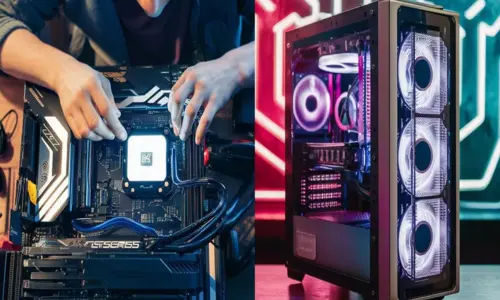Smartwatches vs. Fitness Trackers: Which One Should You Choose?
In an age where technology continuously enhances our daily lives, smartwatches and fitness trackers have become popular tools for managing health, staying connected, and simplifying tasks. Both types of devices offer unique features and benefits, but they cater to different needs and preferences. In this article, we’ll explore the key differences between smartwatches and fitness trackers, examine their respective advantages, and help you determine which device might be the best fit for your lifestyle.
1. Understanding Smartwatches
1.1 What Is a Smartwatch?
A smartwatch is a versatile wearable device that functions as an extension of your smartphone. It provides notifications, allows you to make calls, send messages, and run various apps directly from your wrist. Modern smartwatches offer a broad range of functionalities, including fitness tracking, music control, and even contactless payments.
1.2 Key Features
- Connectivity: Syncs with your smartphone via Bluetooth, and some models offer cellular connectivity.
- Apps and Customization: Supports a wide range of apps and allows customization of watch faces and widgets.
- Health Tracking: Includes health monitoring features like heart rate tracking, ECG, and sleep analysis.
1.3 Popular Models
- Apple Watch Series 10: Known for its seamless integration with iOS devices, advanced health features, and extensive app support.
- Samsung Galaxy Watch 6: Offers compatibility with both Android and iOS, robust health tracking, and a sleek design.
2. Understanding Fitness Trackers
2.1 What Is a Fitness Tracker?
A fitness tracker is a more specialized wearable designed primarily for monitoring physical activity and health metrics. It typically focuses on tracking steps, calories burned, sleep patterns, and exercise performance. Fitness trackers are generally more lightweight and have longer battery life compared to smartwatches.
2.2 Key Features
- Health Monitoring: Includes heart rate monitoring, sleep tracking, and sometimes SpO2 measurement.
- Battery Life: Generally lasts longer than smartwatches due to fewer features and lower power consumption.
- Simplicity: Offers a straightforward user experience with fewer distractions and simpler interfaces.
2.3 Popular Models
- Fitbit Charge 6: Known for its accurate fitness tracking, long battery life, and integration with the Fitbit app ecosystem.
- Garmin Vivosmart 5: Offers advanced health monitoring features and a slim, comfortable design.
3. Comparing Smartwatches and Fitness Trackers
3.1 Functionality
- Smartwatches: Provide a comprehensive set of features beyond fitness tracking, including apps, notifications, and customizable watch faces. Ideal for users who want a multifunctional device that integrates with their smartphone.
- Fitness Trackers: Focus primarily on health and fitness metrics, offering detailed insights into physical activity and wellness. Best suited for users who prioritize fitness tracking over additional features.
3.2 Design and Comfort
- Smartwatches: Tend to be bulkier and heavier due to their additional features. They often come with larger displays and more complex designs.
- Fitness Trackers: Generally more lightweight and compact, designed for comfort during physical activities. They are less obtrusive and more comfortable for all-day wear.
3.3 Battery Life
- Smartwatches: Typically have shorter battery life due to their extensive features and frequent use of connectivity. Users may need to charge them daily or every other day.
- Fitness Trackers: Often last several days or even a week on a single charge, thanks to their simpler functionality and power-efficient design.
3.4 Price
- Smartwatches: Generally more expensive, reflecting their broader functionality and advanced technology. Prices can range from $200 to $600 or more, depending on the brand and features.
- Fitness Trackers: Usually more affordable, with prices ranging from $100 to $250. They offer great value for those primarily interested in fitness tracking.
4. Choosing the Right Device for You
4.1 Consider Your Needs
- For Multifunctionality: If you want a device that does more than just track fitness, such as managing notifications, running apps, and making calls, a smartwatch is the better choice.
- For Fitness Focus: If your primary goal is to monitor your physical activity and health metrics without the need for additional features, a fitness tracker will suit your needs better.
4.2 Lifestyle and Usage
- Active Lifestyle: If you engage in intense workouts or sports, a fitness tracker’s lightweight design and focused metrics may be more beneficial.
- Tech-Savvy Users: If you enjoy having access to apps, notifications, and advanced features on your wrist, a smartwatch will provide a more integrated experience.
4.3 Budget
- Higher Budget: If you’re willing to invest more for a device that offers a wide range of features, a smartwatch will be worth the investment.
- Budget-Conscious: For those looking for essential fitness tracking capabilities at a lower cost, a fitness tracker provides excellent value.
5. Conclusion
Both smartwatches and fitness trackers offer unique benefits, and the choice between them largely depends on your personal preferences, lifestyle, and budget. Smartwatches provide a multifunctional experience with a wide range of features, while fitness trackers focus on delivering accurate health and activity monitoring with longer battery life.
By understanding the key differences and evaluating what matters most to you, you can make an informed decision and choose the device that best complements your daily life and wellness goals. Whether you opt for the comprehensive capabilities of a smartwatch or the specialized tracking of a fitness tracker, both devices offer valuable tools for enhancing your health and staying connected.







